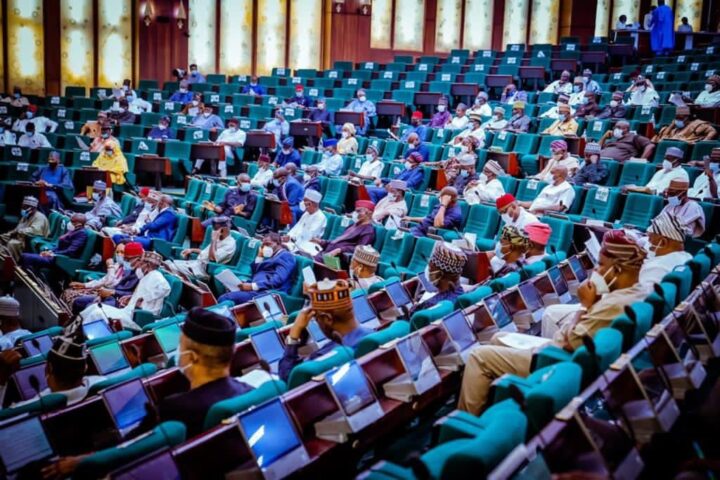House of Representatives has called on Federal Government to ensure that low- and middle-income citizens, internally displaced persons (IDPs), and other vulnerable Nigerians are given priority in the distribution of 753 duplexes recently recovered in Abuja.
Gatekeepers News reports that this followed the adoption of a motion presented by Jafaru Leko, a member representing Bauchi State, during Tuesday’s plenary session.
Earlier in May, Ola Olukoyede, Chairman of the Economic and Financial Crimes Commission (EFCC), handed over the forfeited housing estate to the Minister of Housing and Urban Development, Ahmed Dangiwa.
The estate, located in Lokogoma within the Federal Capital Territory (FCT), was seized from former Central Bank of Nigeria (CBN) Governor Godwin Emefiele.
Dangiwa disclosed that President Bola Tinubu had instructed that the estate be completed and distributed to Nigerians through a process that is “transparent and accountable.”
While moving the motion, Leko emphasised that the estate could play a significant role in addressing Nigeria’s housing deficit, which is estimated to exceed 17 million units.
He warned that without a fair and transparent system of allocation, such assets could end up benefiting only the elite, undermining the intent of asset recovery and denying ordinary citizens access to affordable housing.
He said, “The absence of a publicly available beneficiary selection process or legislative oversight over such transfers may erode public confidence in the sincerity of the government’s anti-corruption and social justice programmes.”
Leko added that it is a constitutional duty of government at all levels to ensure citizens’ welfare, including access to adequate housing as provided under Chapter II of the Nigerian Constitution.
Following a voice vote presided over by Deputy Speaker Benjamin Kalu, the motion was adopted.
The House directed the Ministry of Housing and Urban Development to design and publish a transparent and inclusive framework for allocating the recovered estate—giving priority to low- and middle-income earners, IDPs, and vulnerable groups.
The ministry is to submit a detailed report to the House within 60 days, outlining the proposed use, allocation criteria, and list of beneficiaries.
Additionally, the lawmakers urged the ministry to establish a national database for all forfeited assets to enable public monitoring and civil society oversight—ensuring accountability, transparency, and public confidence in government asset management.










